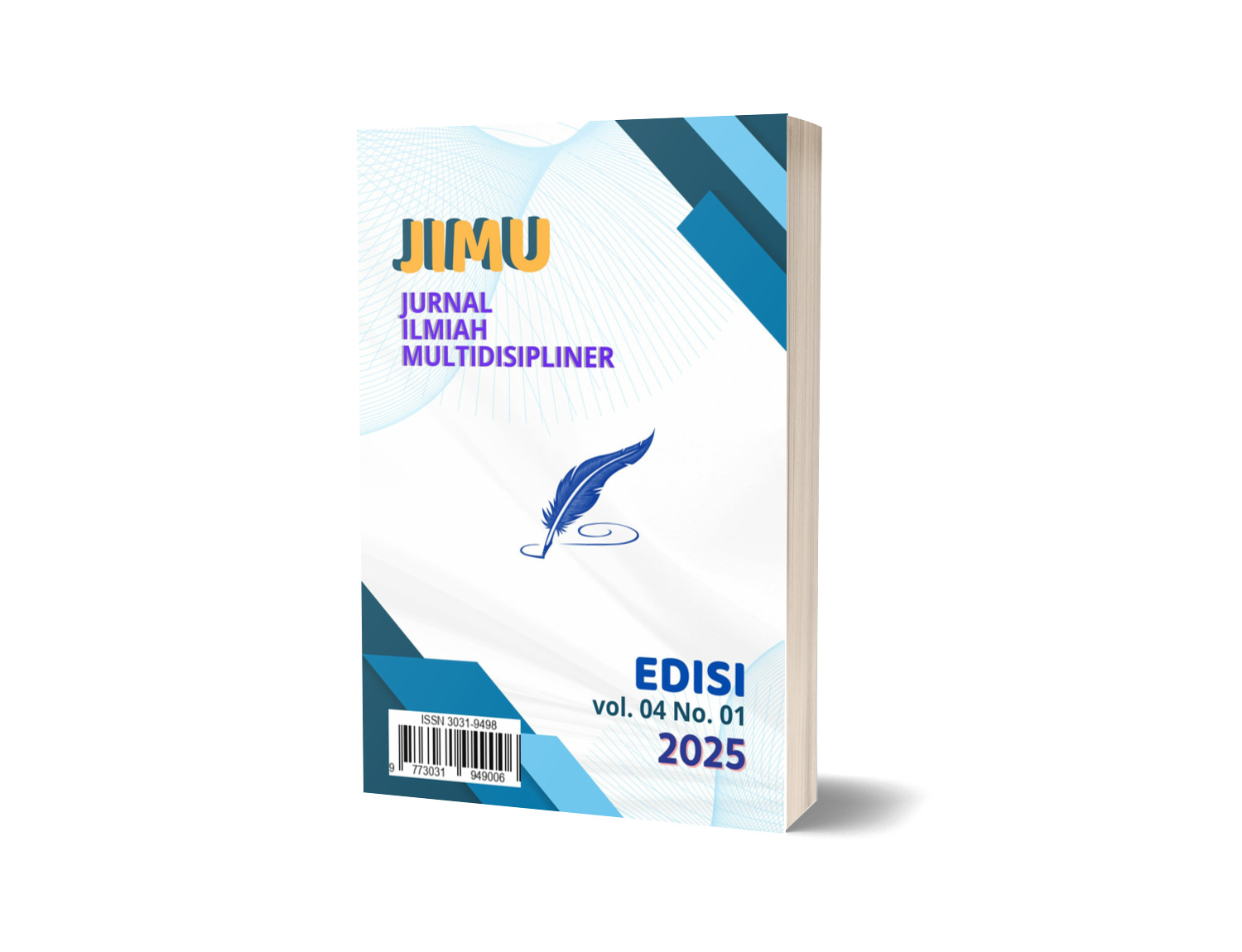The Corporate Mystic: Integrating Spiritual Values in Modern Management for Enhanced Leadership Effectiveness and Organizational Sustainability
Kata Kunci:
Corporate Mystic, Spiritual Leadership, Workplace Spirituality, Values-Based Management, Servant LeadershipAbstrak
The integration of spiritual values into corporate management represents a paradigm shift from traditional command-and-control leadership to a more holistic, purpose-driven approach. This research examines the phenomenon of "corporate mystics" leaders who embark on spiritual journeys within organizational contexts, using corporations as mirrors for self-discovery while fostering meaning, purpose, and belonging among their teams. Using a normative qualitative research methodology with conceptual and case study approaches, this study analyzes the relationship between spiritual values and leadership effectiveness, explores the characteristics of corporate mystics, and examines the practical implementation of spiritual leadership principles in modern organizations. Findings from over 150 empirical studies demonstrate clear consistency between spiritual values and practices and effective leadership outcomes, including increased follower satisfaction, enhanced organizational citizenship behavior, improved corporate sustainability, and superior financial performance. The research identifies key spiritual leadership qualities including integrity, authenticity, compassion, empathy, purpose-driven vision, servant leadership orientation, and commitment to interconnectedness. Corporate mystics distinguish themselves through heightened self-awareness, conscious behavioral management, ability to link personal actions with organizational outcomes, and intrinsic motivation toward self-discovery rather than external success. The study presents contemporary examples including leaders like Indra Nooyi at PepsiCo, who integrated empathy, sustainability, and employee well-being into corporate strategy. Implementation strategies encompass creating contemplative spaces, incorporating mindful practices, fostering transparent leadership, developing values-based decision-making frameworks, and establishing triple bottom line metrics (people, planet, profit). Challenges include overcoming skepticism toward "spiritual" terminology, balancing compassion with accountability, avoiding proselytization while maintaining authenticity, and navigating resistance in traditional corporate cultures. The research recommends focusing on behaviors rather than labels, beginning with inner work and self-reflection, connecting daily tasks to higher purpose, practicing servant leadership principles, and creating supportive organizational cultures that honor the whole person. This study contributes to the emerging field of spiritual leadership theory and provides practical frameworks for integrating spiritual values into modern management practice without compromising professional effectiveness or imposing religious doctrine.
Unduhan
Referensi
Books and Academic Journals
Cavanagh, G. F., & Bandsuch, M. R. (2002). Virtue as a benchmark for spirituality in business. Journal of Business Ethics, 38(1-2), 109-117.
Covey, S. R. (1992). Principle-centered leadership. New York: Simon & Schuster.
Fry, L. W. (2003). Toward a theory of spiritual leadership. The Leadership Quarterly, 14(6), 693-727.
Greenleaf, R. K. (1970). The servant as leader. Indianapolis: Greenleaf Center.
Judge, T. A., Piccolo, R. F., & Ilies, R. (2004). The forgotten ones? The validity of consideration and initiating structure in leadership research. Journal of Applied Psychology, 89(1), 36-51.
Jurkiewicz, C. L., & Giacalone, R. A. (2004). A values framework for measuring the impact of workplace spirituality on organizational performance. Journal of Business Ethics, 49(2), 129-142.
Karakas, F. (2010). Spirituality and performance in organizations: A literature review. Journal of Business Ethics, 94(1), 89-106.
Nash, L. (2001). How the church has failed business. Across the Board, 38(3), 26-32.
Reave, L. (2005). Spiritual values and practices related to leadership effectiveness. The Leadership Quarterly, 16(5), 655-687.
Zinnbauer, B. J., Pargament, K. I., Cole, B., Rye, M. S., Butter, E. M., Belavich, T. G., ... & Kadar, J. L. (1997). Religion and spirituality: Unfuzzying the fuzzy. Journal for the Scientific Study of Religion, 36(4), 549-564.
Articles and Online Publications
Engage for Success. (2025, April 20). "Why Workplace Spirituality Is Important In Company Culture." Retrieved from https://engageforsuccess.org/
ITD World. (2025, July 24). "Spiritual Leadership: A Remedy for Today's Workplace Woes." Retrieved from https://itdworld.com/
Kapable. (2025, June 6). "Spiritual Leadership And The Interplay With Spirituality In Management." Retrieved from https://kapable.club/
Shankar, D. (2021, December 15). "Lessons from Corporate Mystics." Medium - World More Human. Retrieved from https://medium.com/world-more-human/
Research Papers
Dyck, B., & Schroeder, D. (2005). Management, theology and moral points of view: Towards an alternative to the conventional materialist-individualist ideal-type of management. Journal of Management Studies, 42(4), 705-735.
Fry, L. W., & Cohen, M. P. (2009). Spiritual leadership as a paradigm for organizational transformation and recovery from extended work hours cultures. Journal of Business Ethics, 84(2), 265-278.
Miller, D. W., & Ewest, T. (2015). A new framework for analyzing organizational workplace religion and spirituality. Journal of Management, Spirituality & Religion, 12(4), 305-328.
National Center for Biotechnology Information (NCBI). "Spiritual leadership at the workplace: Perspectives and theories." PMC. Retrieved from https://pmc.ncbi.nlm.nih.gov/articles/PMC5038601/
ScienceDirect. (2005, September 12). "Spiritual values and practices related to leadership effectiveness." Retrieved from https://www.sciencedirect.com/
Sustainability Journal (MDPI). (2020, July 5). "The Importance of Spiritual Values in the Process of Managerial Decision-Making in the Enterprise." Retrieved from https://www.mdpi.com/2071-1050/12/13/5423









